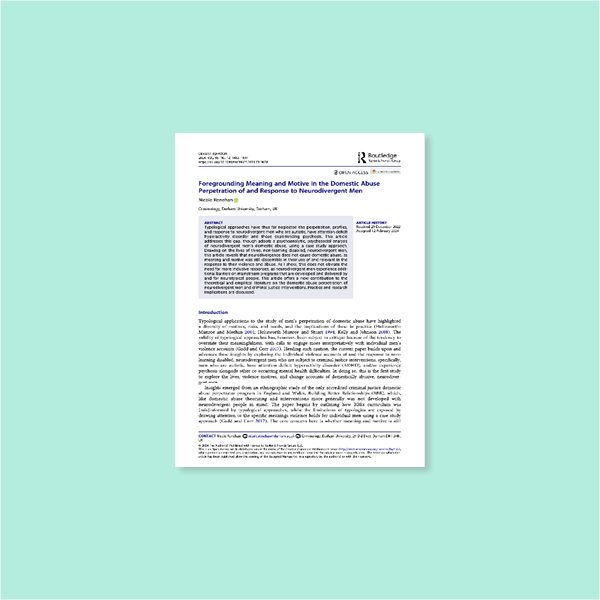 Image 1 of 1
Image 1 of 1


Responding to Coercive Control in Criminal Justice Domestic Violence Perpetrator Programmes in England and Wales: Conceptual, Operational, and Methodological Complexities
Renehan (2022)
Content Warning: Domestic Violence and Coercive Control
This article responds to evaluations of domestic violence perpetrator programmes, which have not produced evidence that they effectively reduce male, non-violent, coercively controlling behaviours. The authors suggest that limitations can be understood by adopting more complex conceptualizations of coercive control for reasons that are gendered and biographically unique. They explore the merits and limitations of cognitive behavioural skills-based criminal justice programme – Building Better Relationships – in regard to coercively controlling behaviour. Their research is built on document analysis and in-depth interviews with eight programme facilitators, and one in-depth case study of a male participant. The authors outline how the dual (re)conceptualisation of coercive control proposed has implications for both practice and programme evaluation methods.
Renehan (2022)
Content Warning: Domestic Violence and Coercive Control
This article responds to evaluations of domestic violence perpetrator programmes, which have not produced evidence that they effectively reduce male, non-violent, coercively controlling behaviours. The authors suggest that limitations can be understood by adopting more complex conceptualizations of coercive control for reasons that are gendered and biographically unique. They explore the merits and limitations of cognitive behavioural skills-based criminal justice programme – Building Better Relationships – in regard to coercively controlling behaviour. Their research is built on document analysis and in-depth interviews with eight programme facilitators, and one in-depth case study of a male participant. The authors outline how the dual (re)conceptualisation of coercive control proposed has implications for both practice and programme evaluation methods.






